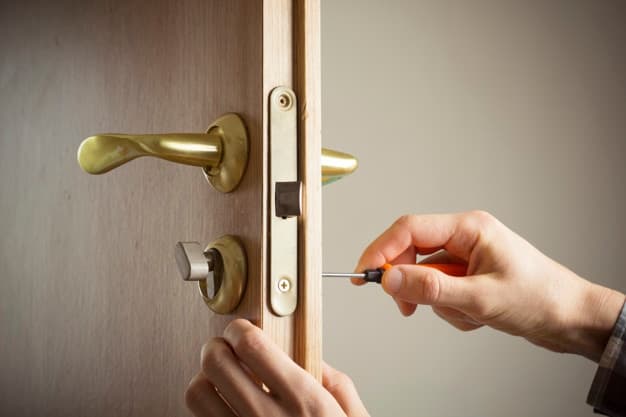When you’re locked out of your home, car, or business, you want fast and affordable help. You might search online and see ads promising locksmith services for as little as $15. It sounds too good to be true—and it is. The so-called “$15 locksmith” is often part of a widespread scam that can leave you overcharged, frustrated, and even at risk of property damage. Here’s what you need to know about the locksmith scam and how to avoid falling victim to it.
How the $15 Locksmith Scam Works
- Misleading Advertising Scammers set up websites or online ads that appear to be local locksmith businesses. They often use phrases like “$15 service call” or “Lowest Price Locksmith Near You” to lure in customers. In reality, there is no local shop—just a call center that dispatches unqualified contractors.
- Bait-and-Switch Pricing When you call, you’re quoted an unbelievably low price, usually around $15 to $30 for the service call. However, once the locksmith arrives, they claim your lock is more complicated than expected and that additional fees are required. What was supposed to be a $15 job can quickly become hundreds of dollars.
- Untrained or Unlicensed Technicians Many scam locksmiths lack proper training, licensing, or certification. They may use aggressive tactics to pressure you into paying, and in some cases, they even damage your locks on purpose to justify charging more for replacements.
- Cash-Only or Hidden Fees Once the job is done, the locksmith may demand cash payment or tack on hidden fees for unnecessary services. If you refuse to pay, they might threaten to withhold your keys or damage your property further.
The Risks of Hiring a Scam Locksmith
- Overcharging: What starts as a cheap service quickly turns into an expensive ordeal.
- Property Damage: Unqualified locksmiths may drill or break locks unnecessarily.
- Security Risks: Some scammers may keep copies of your keys, putting your home or business at risk.
- No Accountability: Many fraudulent locksmiths operate under fake business names and disappear after taking your money.
How to Spot and Avoid Locksmith Scams
- Verify the Business
- Check for a physical address and call the company directly.
- Look for online reviews and complaints on platforms like Yelp or the Better Business Bureau.
- Ask for Credentials
- A reputable locksmith should be licensed (if required in your state) and insured.
- Professional locksmiths often belong to industry associations like the Associated Locksmiths of America (ALOA).
- Get a Written Estimate
- Ask for a full quote before any work begins.
- Be wary of vague pricing or resistance to providing details.
- Look for Marked Vehicles and Proper Identification
- Professional locksmiths usually arrive in branded company vehicles and wear uniforms.
- They should have a business ID or license.
- Trust Your Instincts
- If something feels off, don’t proceed. A reputable locksmith will never pressure you into unnecessary services or surprise charges.
Choosing a Trusted Locksmith
Instead of falling for misleading ads, take the time to find a reputable locksmith before you need one. Look for a local professional with experience, positive customer feedback, and transparent pricing. When you choose a professional locksmith, you’re investing in quality service, reliability, and the security of your home or business.
Final Thoughts
Lockouts are stressful, but rushing to call the cheapest option can lead to costly consequences. The $15 locksmith scam is a common trick that preys on people in vulnerable situations. By staying informed and choosing a reputable locksmith, you can protect yourself from fraud and ensure your security remains intact. Next time you need a locksmith, do your research and hire a trusted professional—you’ll be glad you did.




